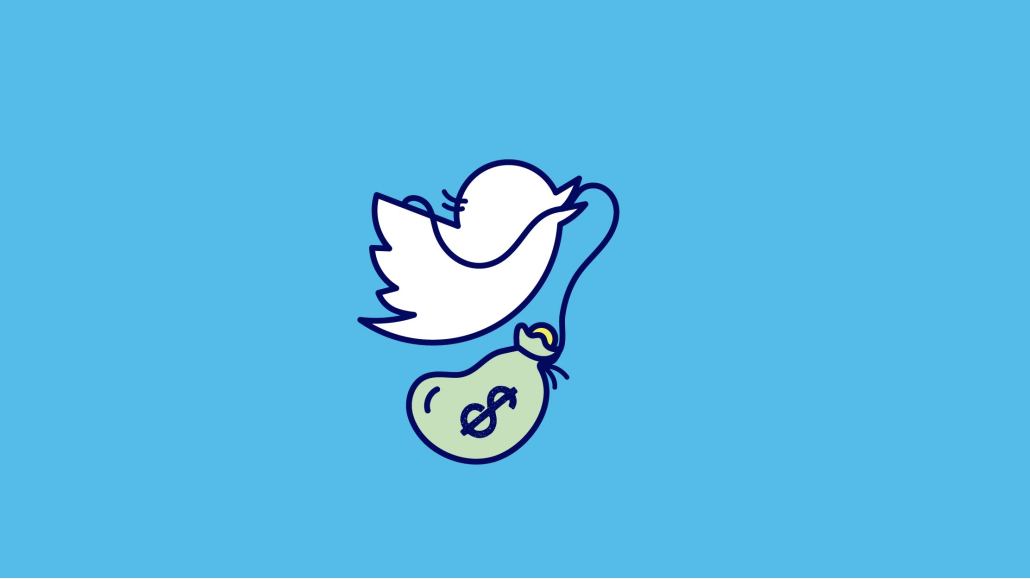Secure your place at the Digiday Publishing Summit in Vail, March 23-25

Elon Musk is already using Twitter to quell advertiser concerns about how he will shape the platform as “Chief Twit.”
In a Thursday morning tweet addressed to Twitter advertisers, Musk addressed worries that he might loosen the company’s content moderation policies.
“The reason I acquired Twitter is because it is important to the future of civilization to have a common digital town square,” Musk wrote. “Where a wide range of beliefs can be debated in a healthy manner, without resorting to violence. There is currently great danger that social media will splinter into far right wing and far left wing echo chambers that generate more hate and divide our society.”
The billionaire — who’s tried to back out of buying Twitter for months — also said the platform will continue allowing ads, which some saw as evidence of him coming to terms with the reality of the business model. (Around 90% of Twitter’s revenue still comes from advertising.) But how Musk’s opinions about advertising could evolve is yet to be seen even as some worry about what Musk-run town square will look like, with or without ads.
According to one agency executive, Twitter employees have been briefing Musk on Twitter’s ad capabilities. Meanwhile, senior leaders at Twitter are also nervous about longtime employees departing, according to the source, and even those that have stuck around are anxious about what the future might look like.
Musk’s tweet was met with eye rolls from some marketers. Others wonder whether Musk really understands what advertisers need from the platform. Tom Morton, global chief strategy officer at R/GA, said Twitter still has potential if it can develop products around its strengths, such as how it reaches users ranging from business leaders and politicians to celebrities and sports fans.
“Musk should recognize the hidden strengths of what he owns before he turns the business upside down,” Morton said. “The paradox of Elon Musk owning an advertising platform is that a man who accepts no rules or limits on his own behavior will need to welcome some moderation on his platform if he wants it to be a welcoming space for users and advertisers.”
Matt Wurst, chief marketing officer and co-founder of Mint, an NFT platform for brands, said advertisers won’t run toward Twitter if there remains the “yellow flag” of uncertainty related to leadership, products and policies. However, he said if it can maintain stability, there will be fewer concerns.
“Twitter’s leadership team across the board is its greatest strength,” he said. “And I hope and expect the current instability to settle and for those leaders to remain and stay focused.”
Ad spending on Twitter is projected to grow 11% in 2022 — slower than the 42.5% growth it projected last year, according to WARC, which expects growth to be just 2.7% in 2023. The research group expects only one U.S. platform — Facebook — to have slower growth, which WARC expects will shrink by 8.2% this year and 8.6% next year.
Twitter hasn’t been a priority for marketers even before Musk offered to buy it, according to Alex Brownsell, head of WARC Media. He said Twitter has brand safety problems and that some advertisers have been “holding their nose” even before Twitter gets new ownership in Musk. Rather than spend time improving the platform’s effectiveness or finding new forms of revenue to offset its reliance on advertising, Brownsell said the pending deal and accompanying lawsuit have left a lot of uncertainty.
“It’s left Twitter in a state of limbo for a period of time where we see a huge amount of innovation from other media companies,” Brownsell said. “TikTok has stolen a march on everybody.”
Even if Twitter is able to improve its advertising platform or introduce new forms of revenue, others see Musk’s promises to not turn it into a “free-for-all hellscape” as contradictory to what he’s been suggesting for months. Tiffany Xingwu Wang, CMO of OpenWeb, said less moderation on Twitter could turn it into “a Wild West where the loudest and most strident voices dominate.” She said “freedom of speech isn’t the same as freedom of reach” and that “we can’t let the most toxic voices be the loudest.”
“That is the opposite of what we need to do to build brand safety,” she said. “We need to be focused on moderation, more healthy conversations and greater trust among users and between communities, publishers and advertisers.”
Without the checks and balances that come with Twitter being a public company, some think advertisers on the platform could face even more pressure to hold the platform accountable.
Angelo Carsusone, president of Media Matters, a left-leaning watchdog group, said any new brand safety concerns on Twitter might lead users to question whether brands should pause spending on the platform like they did on Facebook in 2020. But while Facebook was able to cushion the blow thanks to its large advertiser base of small and local businesses, Twitter relies a lot more on blue-chip advertisers.
“Talk radio doesn’t get Apple advertising and they don’t get Coca-Cola because it’s considered too toxic,” Carsusone said.
More in Marketing

WTF is Meta’s Manus tool?
Meta added a new agentic AI tool to its Ads Manager in February. Buyers have been cautiously probing its potential use cases.

Agencies grapple with economics of a new marketing currency: the AI token
Token costs pose questions for under-pressure agency pricing models. Are they a line item, a cost center — or an opportunity?

From Boll & Branch to Bogg, brands battle a surge of AI-driven return fraud
Retailers say fraudsters are increasingly using AI tools to generate fake damage photos, receipts and documentation to claim refunds.





